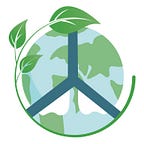Writing up a messy field? A personal account of an iterative process
Priyanka Das
Introduction
This piece deals with some of my ruminations post doing fieldwork in the Bombay film industry for my ongoing doctoral degree. It echoes both ‘productive’ contemplation and ‘anxious’ over-thinking on the gratifications and regrets, that I as the author experienced while writing up the field. It was harder than doing the actual fieldwork. I had lesser decisions to make while I was in the field. I had mostly held on to a passive role in the field; barring a few times when it was absolutely required. Yet while writing, I found myself very uncomfortable in a similarly passive approach of thematising the ethnography into analytical categories. On the other hand, the method of active storytelling appeared more compelling.
Fieldwork is a messy endeavour which can become distinctively complicated according to the settings of each different field. Then, there are several established methodologies that give us tools to comprehend and structure the ethnography. Before we zero down on a particular methodology, after the transcriptions have taken place, many of us are dumbfounded looking at the chaos in our field notes. Some seniors had suggested delineating a few themes from the initial readings of the field notes, and then to organise the notes according to the themes. That job is still in process, and a few of those sections that have been drafted leave me feeling fragmented about the whole process. Writing that seeps through the filter of pedagogic instructions often requires deliberate efforts of alienating some experiences and reflections from others.
- An ethnographer’s rite of passage
It wouldn’t be surprising if, in India, a PhD candidate says that they are taking on a qualitative fieldwork for the first time, towards the production of a thesis. Barring the newer liberal arts oriented private universities, most of us in the discipline of humanities and social sciences have never been required to submit a thesis until our MPhils or PhDs. In many a case, like in mine, a fellowship of five years like the JRF may incite one to hop, skip and jump over to doing a PhD directly. Even after getting admission, a senior would remind some of us, that it is a misstep, to skip MPhil, which exposes one to the necessary training of doing serious research. Though we had courses offering research methodologies which included ethnography, was it enough as a rite of a passage to actually start implementing ethnographic methods in the field?
My fieldwork, on the labour processes of the Bombay film industry, started on an intense note from the very initial days. I stumbled right into the thick of the field before I could do a satisfactory pilot study. In 2017, in the first year of the doctoral degree, a strike was organised by some unions outside the film city. An informant from the field, one of the very early contacts established, had given me a heads up and also stressed that it’s important that I begin my fieldwork full-fledged. A strike in the industry has been heard of rarely and I had to haste to not miss it.
2. Dilemmas and crossfires
Research in the film industries of India is still very young, because of obstacles from chaotic informality, decentralization, disintegration, and the inaccessible nature of these industries. I was eager to find a legitimate entry, and deep dived into ensuring trust and acceptance among my respondents. However, the intensity of the strike and the situations that gave rise to it soon found me too deep in the field, wherein I would be asked to turn up for several events in the field, often with roles of assisting. While it was gratifying to sense the acceptance in the field, often there was an anxiety of losing the researcher’s perspective. Is it really possible to be mindful in the field, especially when you have just started out? What is being mindful in ethnography? How to be mindful in not appropriating the efforts and voices of others, and how to preserve your researcher self from evaporating in the thick sensuality of your field.
3. Writing up the field
Then it was time to establish the critical distance between the self and the field. A temporary renunciation from the field allowed me to embrace a more active writing up of the field. I did make several reports from the progress seminars of my department based on the fieldwork. These were thematized and presented as analytical categories to organise the fieldwork. However, I didn’t enjoy the end results. It felt fragmented, with an artificial pressure of analysing. My ruminations on the field followed this dissatisfaction and I started seeking ways in which writing up the field could be truer to its complexities.
Sincere self-reflection, and the accounting of one’s actions which also constructs the field that we study, came up as possible ways to engage with my dilemmas. I am writing up the field now with a flair of active storytelling and I also feel more satisfied doing it that way. I talk about engaging with self-reflection and ethical considerations beyond a methods chapter or an introduction section. Moving closer to the ways of autoethnography, I find it more rewarding to unfold the field with its inherent continuities and discontinuities. Nonetheless, working on the thematization was necessary to help me understand how I do not want to write my field. Ethnography as a practice is bound to be unpredictable, and doing a better ethnography will always tend to be an iterative process.
Priyanka Das is pursuing her PhD from the Department of Humanities and Social Sciences (HSS), IIT Bombay. She works on labour in the Bombay film industry.
